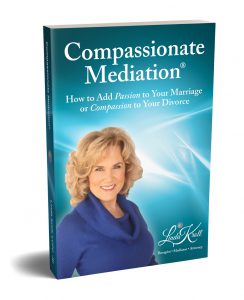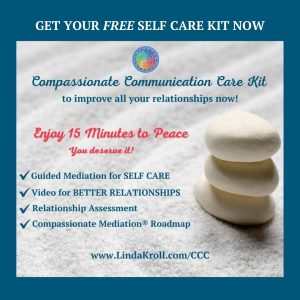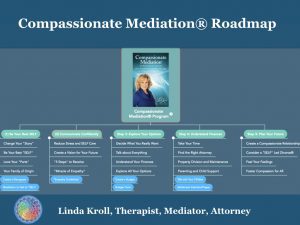I’m Linda Kroll, and for over 30 years I’ve been an Internal Family Systems practitioner. I first met Dick Schwartz 30 years ago. I was in his second training class. I am grateful to all he has shared and all of my colleagues at the IFS Institute.
And for whatever reason you’re here today to learn about IFS, to use it in your practice, to see how it can help you in your own relationship, I want to use give you some tips and skills that you can use now, both to improve your own relationships and to take into your practice.
What is Internal Family Systems?
I’m not going to tell you, I’m going to show you.
I’m going to show you what I do in my first session with someone to see how I can share that skill with you, or if you’re someone with your own relationship issues, you can use it now.
Let’s pretend you’re coming in to see me for the first time.
And because I am a therapist and a mediator and an attorney, I’m not always sure why someone comes to see me.
Oftentimes it’s for individual counseling, sometimes couples.
Let’s say you have a client that comes in for the first time and they want to go into their stories -and they could tell you their story for about 45 minutes or however long your session is. Then they could leave and feel marginally better because you listened, you showed them empathy, however you’re not giving them a new perspective.
And what Internal Family Systems has done for me is help me give the words to them about what being in their higher SELF means.
You come into my office, I say, how can I help?
And they start to tell me their story. Their husband does this, their wife does that, their child does this, their parent does this, there’s someone with whom they might be having conflict.
I’ll listen for about five minutes. And then I say, I have a few questions that I’d like to ask you.
if you’re doing this for yourself right now, you might want to think about someone with whom you’re having conflict.
And let’s just try this and see how it works. in this way of doing it, I’m going to show you how I introduce Internal Famlly Systems
Think of the person with whom you’re having conflict. And then I would ask a few questions.
I would ask, what does this person do that bothers you? They may be withholding. They may be judgmental. They may be critical.
And then I say, and what do you feel when they act that way?
I feel sad. I feel mad. I feel hurt.
And then what do you do?
I withdraw, I yell,
and I’m listening for parts of each of them.
In other words, I’m listening for how they think, feel, and act so that I understand from a parts situation, which I’ll explain to you,
And then I’ll ask them about their family of origin.
Tell me a little bit about your mother, father, siblings.
And what I’m listening for there is are there any family secrets? Was there any addiction? Is there any family history that’s going to affect how they each relate to each other?
And this works with just one person. You don’t have to have a couple in your office.
If you’re working with one person, it’s the same interview.
If it’s with a couple, I interview them separately and ask them the same questions.
And then when I’ve asked them to describe their family of origin, very briefly, what was the relationship with their parents, I’m listening for, is there any reason for codependency? Was there any family secrets? Was there any abuse?
And I’m just trying to see what were the limiting beliefs that they grew up with.
And then I ask, can you describe the other person’s family of origin? Meaning describe their father and mother and siblings.
And often what this does, it gives the person in front of you a different perspective because they’re looking at the person with whom they’re having conflict and feeling that they have the ability to understand where they came from.
In other words, if a wife is complaining that her husband shows no emotion, and then she tells you about his alcoholic father that was abusive, you can help her see that he never learned how to be in touch with his own emotions. So it’s hard for him to have empathy for hers.
You’re just taking all this in what is basically a 15 minute interview.


